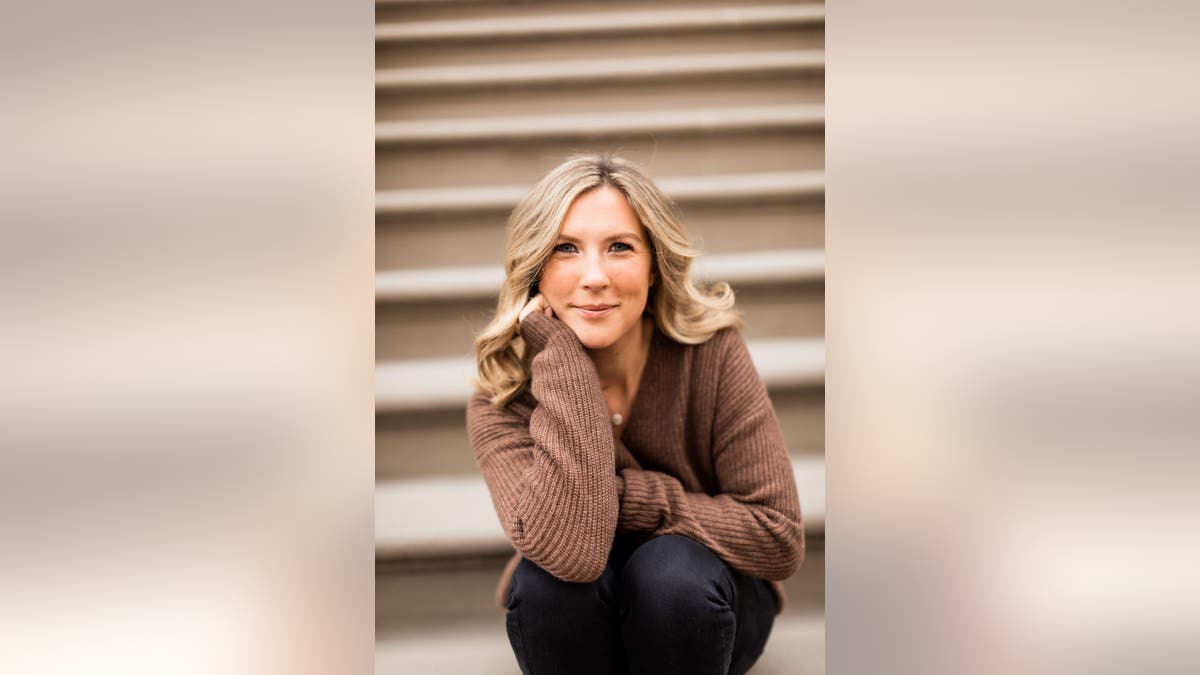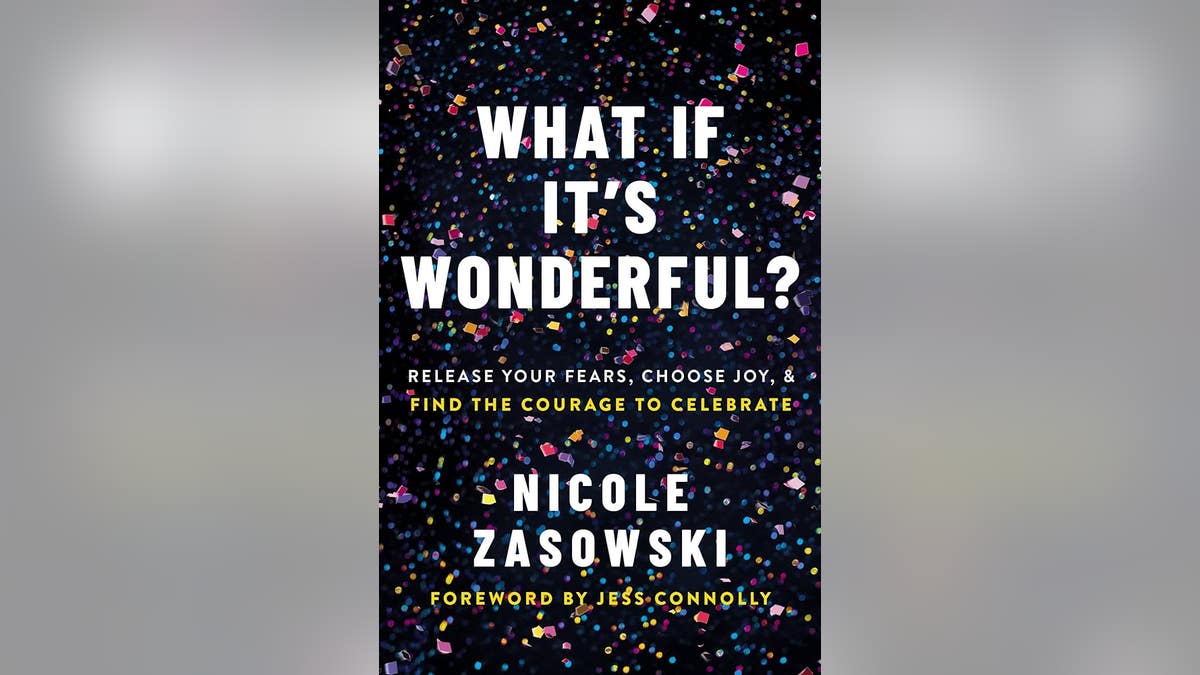Fox News Flash top headlines for May 23
Fox News Flash top headlines are here. Check out what's clicking on Foxnews.com.
The flimsy white paper sheet wasn’t enough to hide the rattle of my shaking knees. After five pregnancies that ended in miscarriage and a few ultrasounds accompanying each one, sitting in an exam chair was not a neutral experience for me. I had done my best to keep my expectations low, but the longing I felt to meet this baby that I prayed was growing inside me could not be suppressed. I was eight weeks pregnant and the picture on the screen would tell me everything I needed to know about whether I could continue to hope to hold this baby in my arms or if grief would scoop this baby away to be carried only in my heart.
The ultrasound appeared on the screen and everyone including my husband, nurses, and ultrasound technicians erupted in cheers and joyous laughter. Everyone…except for me. I smiled faintly, doing my best to join the merriment. I understood the invitation to celebrate in this moment. But I was unable to receive it. Where I should have felt joy, I felt fear instead. After so much loss and heartache, I had become highly suspicious of joy, afraid to actually embrace God’s good gifts for fear that they would be snatched away.
What if my dreams only lead to disappointment? What if my hope only leads me to heartache?
Most of us have never considered the fact that joy is indeed the most vulnerable feeling we feel. But whether your particular brand of struggle looks like mine or not, you likely know that when you’ve experienced pain or trauma of any kind, it can feel safer not to embrace joy than to hold something that might break.
At first glance, it may seem odd to consider that joy could be a scary feeling. But in fact, joy is the most vulnerable feeling we feel because when you’ve experienced pain or trauma of any kind, it can feel safer not to hold the joy at all than to hold something that might break in your hands. So, we learn to give joy a stiff-arm in an attempt to protect ourselves.

Nicole Zasowski is a licensed marriage and family therapist, sought-after speaker, and author of "What If It’s Wonderful?" and "From Lost to Found. "
For many who have experienced profound or chronic heartache or loss, pessimism has become a trusted guard against the fear that often accompanies our joy. We stare into the future and, instead of dreaming about what could be, we choose to believe that the worst possible outcome will surely happen. We practice disappointment and rehearse disaster in an attempt to prepare ourselves for what we are convinced is inevitable pain. We tell ourselves that it’s helpful (or even prudent!) to keep our expectations low instead of holding hope and imagining possibility.
Next to pessimism, many of us carry a similar but different shield of cynicism. Pessimism holds a lack of hope or confidence in the future while cynicism doubts people’s motives—or in some cases, God’s. We know that God is good, but we imagine that the "good" in our life will always look like broccoli on a dinner plate: good for us, but never something we feel excited about.
One of my griefs amidst the chronic loss I experienced was not only the sting of the loss itself but also my refusal to embrace joy when it came.
A painful fear that many of us carry is that we will always be disappointed by the story God has written for us. God doesn’t plot our suffering. But when we’ve endured pain, it’s easy to fear that His plans for our life—the pains and joys He allows and doesn’t allow—will always be something we grieve. So, we become cynical and assume that the goodness of God will always feel like growing pains.
NORTH DAKOTA RANKED BEST STATE FOR CHILDBIRTH, MISSISSIPPI RANKED WORST: REPORT
While pessimism and cynicism are trusted protectors for many of us, they are not trustworthy—for any of us. Pessimism is a means of control as we attempt to take the element of surprise out of our grief and somehow reduce its effects. But anticipation does not guard against grief. Research says that even if the outcome we fear should happen, anticipating that result will not lessen the sting of that outcome. What it will protect us from is the ability to see and embrace the gifts in our lives and hold hope for the future.
The only practice that helps us tolerate the vulnerable of joy? Thanksgiving.

The words and ideas of gratitude and thanksgiving are often used interchangeably but there is a distinct and important difference between the two. Thanksgiving is the outward expression of the gratitude that we feel in our hearts. While both practices are valuable, this distinction matters because when we express the joy we feel out loud through the practice of thanksgiving, it doubles the joy we will experience had we simply felt quietly grateful in our hearts.
Hope is not a denial of the cost. It honors the painful reality but does not fall to fear because it knows that what we can see is not all there is. Hope celebrates God’s promises and delights in what is possible with Him.
Thanksgiving invites us to name and celebrate what is true about God’s character and presence with us today, and reminds us of the many ways He has been faithful to us in the past, which naturally leads us toward hope for the future, where we no longer ask ourselves, "What if I’m disappointed or heartbroken?" Instead, we ask a question like, "What might God do?" or, "What if it’s actually going to be okay?" Or, my personal favorite, "What if it’s wonderful?"
CLICK HERE FOR MORE FOX NEWS OPINION
Hope is not a denial of the cost. It honors the painful reality but does not fall to fear because it knows that what we can see is not all there is. Hope celebrates God’s promises and delights in what is possible with Him.
Maybe your story is similar to mine. Or, perhaps you’ve weathered different storms in your life such as chronic illness, a ruptured relationship, or the death of a dream. But whatever shape the storms have taken in your life, perhaps you’ve allowed your disappointment to keep your dreams small. Or, maybe you’ve allowed your heartache to infect your hope, knowing God can move in your life and in your heart, but doubting He will.
One of my griefs amidst the chronic loss I experienced was not only the sting of the loss itself but also my refusal to embrace joy when it came. Many of the missed opportunities, losses, and relational disconnection and tension I experienced came as a result of my inability to celebrate moments of progress, yeses, beauty in the present, and connection with people I loved.
CLICK HERE TO GET THE FOX NEWS APP
I don’t want us to look back on our lives—our beautiful, wonder-filled, God-given life—and realize that we’ve mostly missed it while we were busy preparing for the worst.
So, when you find yourself wondering if it’s safe to celebrate, contemplating whether or not hope is a good idea, or standing on the precipice of something new, remember that pessimism will not protect you.
Name what is true about the God that sits with you where you are, remember how He has been faithful in the past. And as you look to the future, may you have the courage to ask, "What if it’s wonderful?"










































